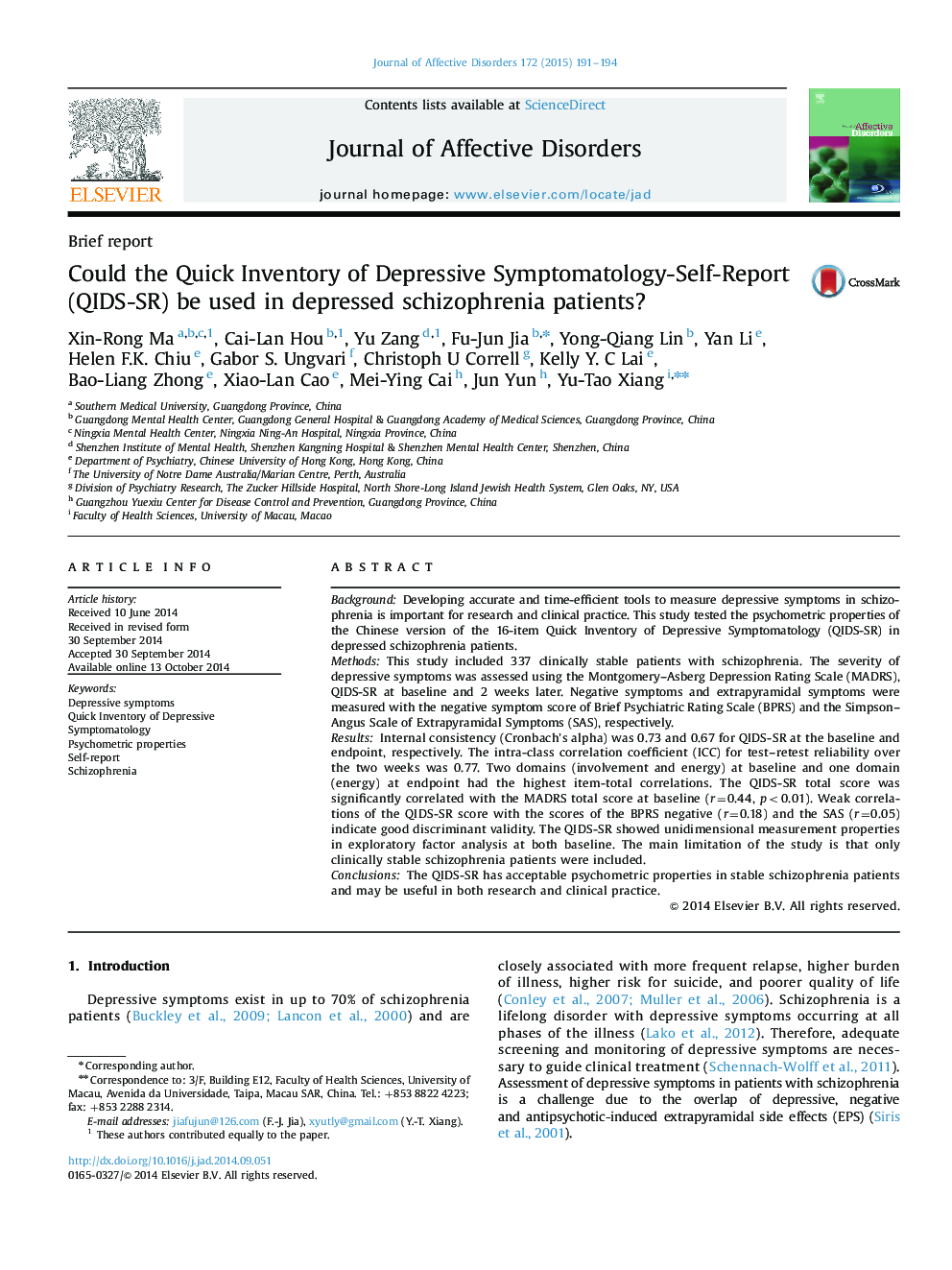| Article ID | Journal | Published Year | Pages | File Type |
|---|---|---|---|---|
| 6232268 | Journal of Affective Disorders | 2015 | 4 Pages |
BackgroundDeveloping accurate and time-efficient tools to measure depressive symptoms in schizophrenia is important for research and clinical practice. This study tested the psychometric properties of the Chinese version of the 16-item Quick Inventory of Depressive Symptomatology (QIDS-SR) in depressed schizophrenia patients.MethodsThis study included 337 clinically stable patients with schizophrenia. The severity of depressive symptoms was assessed using the Montgomery-Asberg Depression Rating Scale (MADRS), QIDS-SR at baseline and 2 weeks later. Negative symptoms and extrapyramidal symptoms were measured with the negative symptom score of Brief Psychiatric Rating Scale (BPRS) and the Simpson-Angus Scale of Extrapyramidal Symptoms (SAS), respectively.ResultsInternal consistency (Cronbach׳s alpha) was 0.73 and 0.67 for QIDS-SR at the baseline and endpoint, respectively. The intra-class correlation coefficient (ICC) for test-retest reliability over the two weeks was 0.77. Two domains (involvement and energy) at baseline and one domain (energy) at endpoint had the highest item-total correlations. The QIDS-SR total score was significantly correlated with the MADRS total score at baseline (r=0.44, p<0.01). Weak correlations of the QIDS-SR score with the scores of the BPRS negative (r=0.18) and the SAS (r=0.05) indicate good discriminant validity. The QIDS-SR showed unidimensional measurement properties in exploratory factor analysis at both baseline. The main limitation of the study is that only clinically stable schizophrenia patients were included.ConclusionsThe QIDS-SR has acceptable psychometric properties in stable schizophrenia patients and may be useful in both research and clinical practice.
